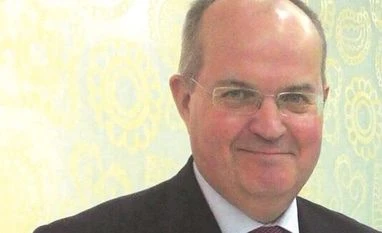What is the rationale behind the series of mini agreements, followed by an FTA?
If you look at how FTAs have been negotiated, and the time it has taken, either by India or by the UK with various parties, quite often it extends over a considerable period.
They are looking at tariff-related and long-term issues, which can be agreed between parties relatively simply via an early harvest or an interim agreement, such that the overall process on this comprehensive FTA becomes an iterative process.
That’s a very sensible way of going ahead, because it sends a positive message to businesses that there is some degree of realism in wanting to achieve a successful outcome.
What should the focus be in the early stages to ensure a win-win situation?
There are three areas that we feel negotiations should focus on. One is reducing tariffs in a relatively limited range of sectors, including alcoholic beverages, food and beverages, and in the healthcare sector.
The second would be reducing non-tariff barriers to goods and trade such as aligning standards, simplifying burdensome Custom procedures, and maybe also some tariffs in certain sectors where they can be prioritised as well.
The third area where we feel progress can be made in a relatively expeditious way would be on IP protection and alignment of data protection rules to drive growth in innovative and tech-rich digitally-focused industries. There are certain aspects that can be part of the mini agreements. There are certain tariff and non-tariff areas and IP issues that could be discussed. In fact, discussions are already taking place between the UK and India in some of these areas. We are not far away from an understanding.
How has India’s recent decision to do away with retrospective tax law changed investor sentiment?
Obviously, it has been welcomed on record by the UKIBC. I think it’s a very positive message that India is open for business and is welcoming foreign direct investment (FDI).
On that point, I would talk about one aspect, which has come up in our consultation, which is a general point around investment protection. And that relates both to UK environments as well as the board’s decision as to whether to invest in individual companies based on the certainty of the rule-based systems that relate to the protection of investment. Therefore, I think it’s very important that whatever is agreed within the FTA process and early harvest agreements has to be done within the context of providing some degree of assurance on investment protection.
The situation is that there is no bilateral investment treaty with India. It is still being discussed. So, at this particular time, we are relying on the World Trade Organization (WTO). Now, it would be good to have some form of assurance within the contract as to what the regime will be going forward.
What kind of opportunities do you see in India’s services sector?
There are a number of focus sectors that we are hearing from companies that we are talking to. The focus is on future businesses, digital data services, issues around data protection, data localisation, and standardisation. These are things that I think are a priority. The other area that UK businesses are putting a lot of emphasis on is around food and beverage. I’m not just talking about alcoholic drinks; I’m talking about food imports and exports. If we raise regulation standards, standard procedures like labelling and certification, it would add significantly to the level of trade in both directions in these areas.
Another area that we are very focused on is higher education, particularly around mutual recognition of qualifications, online degrees, and the limitations on foreign universities operating in India.
In healthcare and lifestyle, we have already seen the tremendous collaboration that has occurred between Serum Institute of India and AstraZeneca, and this is something that we can build on. We can also bring something for India’s insurance and financial services. In the defence sector, we can bring UK businesses to support the ambitions of India.
To read the full story, Subscribe Now at just Rs 249 a month
Already a subscriber? Log in
Subscribe To BS Premium
₹249
Renews automatically
₹1699₹1999
Opt for auto renewal and save Rs. 300 Renews automatically
₹1999
What you get on BS Premium?
-
Unlock 30+ premium stories daily hand-picked by our editors, across devices on browser and app.
-
Pick your 5 favourite companies, get a daily email with all news updates on them.
Full access to our intuitive epaper - clip, save, share articles from any device; newspaper archives from 2006.
Preferential invites to Business Standard events.
Curated newsletters on markets, personal finance, policy & politics, start-ups, technology, and more.
Need More Information - write to us at assist@bsmail.in
)